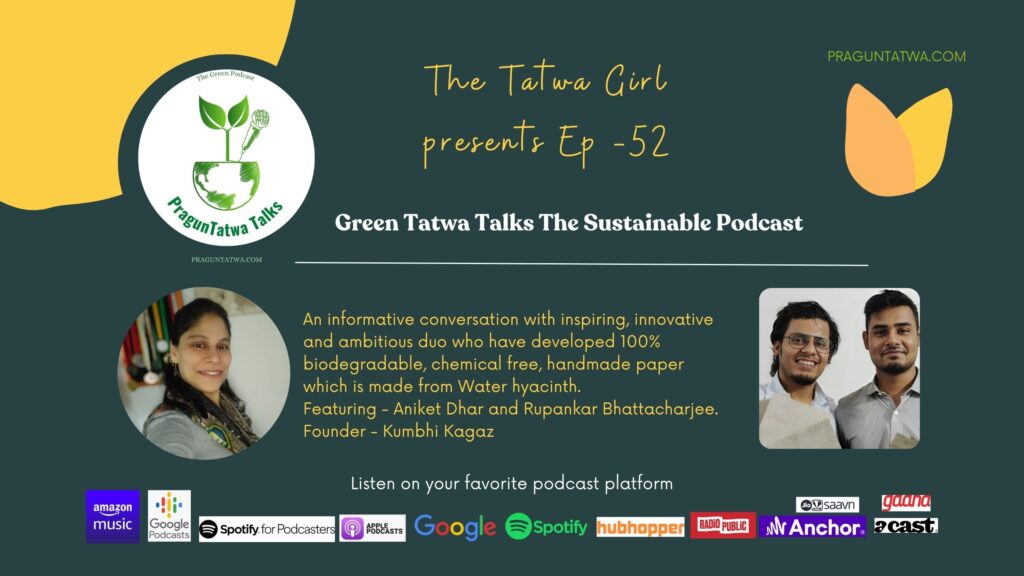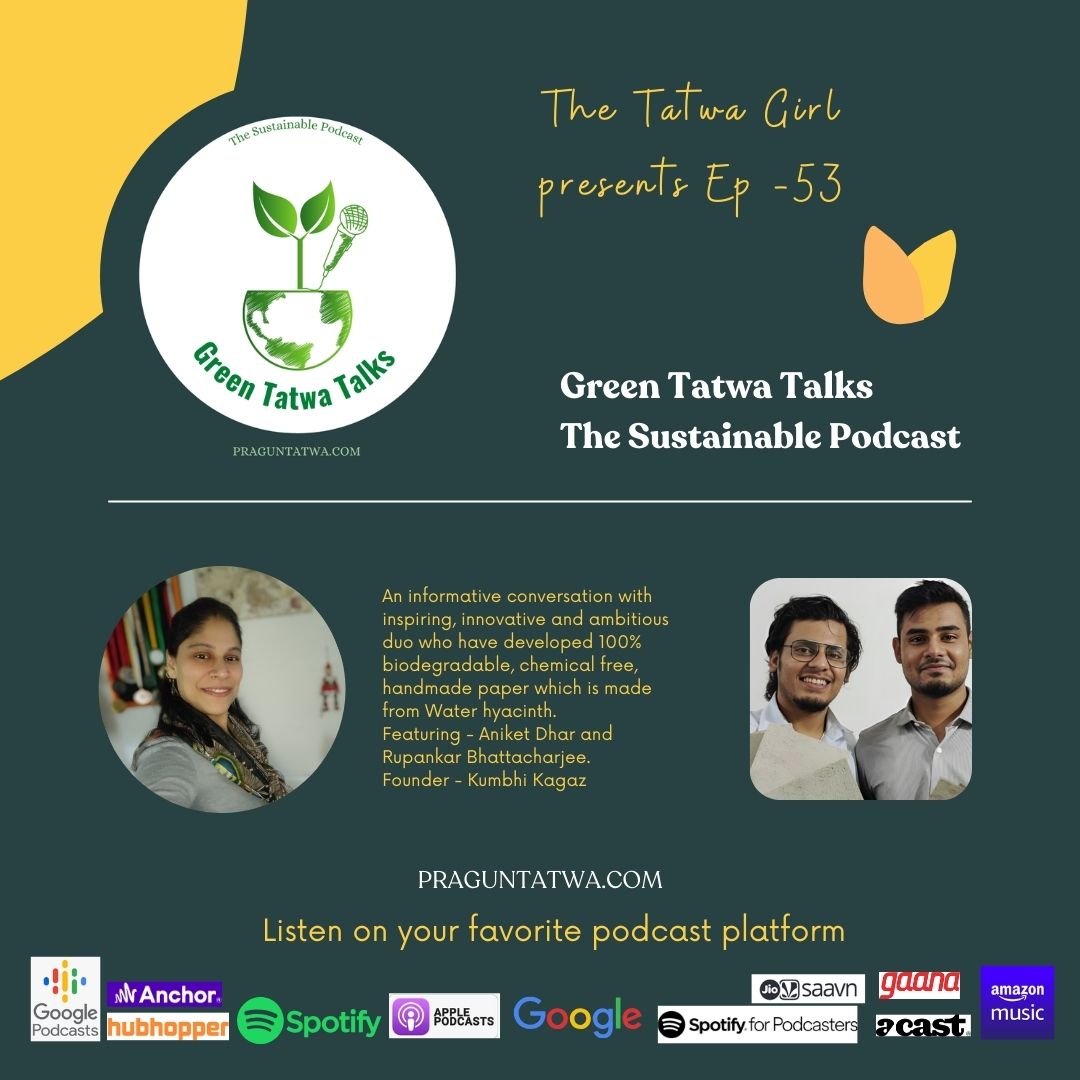“Creativity is thinking up new things. Innovation is doing new things.”
– Theodore Levitt
Handmade Paper
Handmade paper is a type of paper that is crafted manually rather than produced by machines. It is made using traditional methods that date back centuries, often involving the following steps:
- Pulp Preparation: The process begins with creating pulp from natural fibers, such as cotton, linen, or even recycled paper. In some cases, plant fibers like those from the mulberry tree or the Kumbhi tree (as mentioned earlier) are used.
- Forming the Sheets: The pulp is then spread evenly on a mesh screen or mold, which helps shape the paper. The excess water drains through the mesh, leaving behind a thin layer of fiber.
- Pressing and Drying: The formed sheets are pressed to remove additional water and then laid out to dry by air or in the sun. This process can take several days, depending on the conditions.
- Finishing: Once dry, the sheets are often pressed again to smooth them out and maybe sized to improve their texture and durability.
Characteristics of Handmade Paper:
- Texture: Handmade paper usually has a unique, textured surface that adds character to the material.
- Durability: It tends to be more durable and stronger than machine-made paper due to the long fibers used.
- Eco-friendly: Handmade paper is environmentally friendly because it often uses recycled materials or sustainable fibers.
- Uses: It is often used for special purposes, such as in artistic projects, wedding invitations, calligraphy, bookbinding, and more.
Handmade paper is valued for its aesthetic qualities and the craftsmanship involved in its creation, making each piece unique.
Kumbhi Kagaz
In 2017, two youths from Guwahati, Assam – Rupankar Bhattacharjee and Aniket Dhar were recognized for making printable handmade paper from meteka. The duo, with their innovation, won the Zero Waste Cities Challenge which was aimed at finding entrepreneurs with innovative business ideas that can help reduce or recycle waste and create green employment opportunities. Both Rupankar and Aniket through a rigorous process of learning and unlearning embarked on an entrepreneurial journey with Kumbhi Kagaz which specializes in making 100% biodegradable, blot-free, and chemical-free handmade paper from water hyacinth.
The idea behind Kumbhi Kagaz was not just the eradication of water hyacinth completely but to bring about a sustainable change in a step-by-step manner. Kumbhi Kagaz aims at ecologically restoring Deepor Beel, the lone Ramsar site of Assam along with providing livelihood opportunities to the community dependent on it by making 100% biodegradable chemical-free handmade paper from water hyacinth waste.
The water hyacinth surely adds color and freshness to dirty muddy village ponds. But in reality, its beauty is only surface deep. Today, it is popularly known as “Bengal terror” & “German weed” (just like the quick fall and rise of Germany). Now water hyacinth is a weed, a parasite that can duplicate itself every nine days. Due to its fast-growing nature, the weed quickly spread across most of the wetlands in India. Water hyacinth locally known as meteka has garnered a bad reputation for itself as the invasive plant endangers the ecosystem because their existence reduces other populations and biodiversity.
Green Tatwa Talks
In this episode of Green Tatwa Talks, I am conversing with Aniket Dhar and Rupankar Bhattacharjee, Founder of Kumbhi Kagaz, The Desh ka Kagaz.
Kumbhi Kagaz was born out of love for wildlife. During a snake rescue release mission into the wetlands, they encountered the problem of water hyacinth, which has multiple issues, including the blockage of the water surface. This blockage prevented them from taking pictures to document the release of the snake. One of the founders, Rupankar Bhattacharjee, developed a prototype during the COVID-19 pandemic. Afterward, the other founder, Aniket Dhar, joined the team, documented their efforts, and shaped it into a business model. They first won the Zero Waste Cities Challenge organized by Waste Aid U.K.
Listen to the episode on –
YouTube
Spotify
Apple Podcast
Hubhopper
Spotify For Podcasters
YouTube Music
JioSaavn
Radio Public
Gaana
Acast
Pocket Cast
Radio Public

“The ground’s generosity takes in our compost and grows beauty! Try to be more like the ground.” — Rumi
Sustainability With Prachi
In addition, Along with Eco-friendly discussions, I even share Positive stories of people bringing beautiful change to this world.
Being Eco-Friendly is not a choice, make it a habit.
Without a doubt, sustainability is easier than you think. You don’t have to jump in by changing everything, start small to make the changes more eco-friendly, sustainable and a part of your daily life.

Leave a Reply